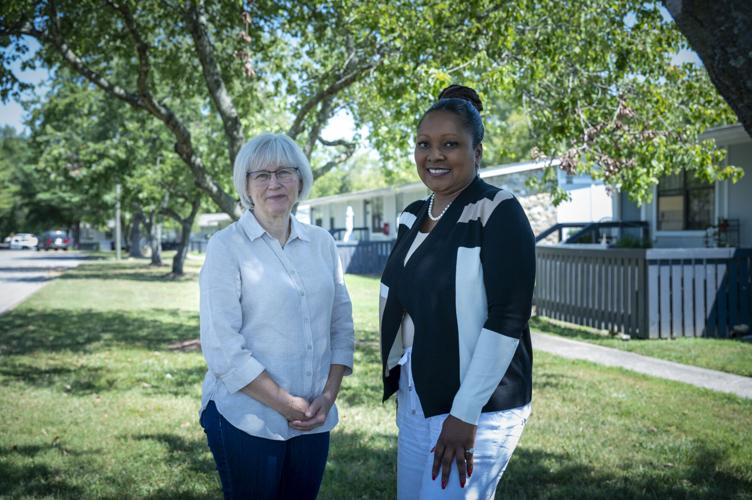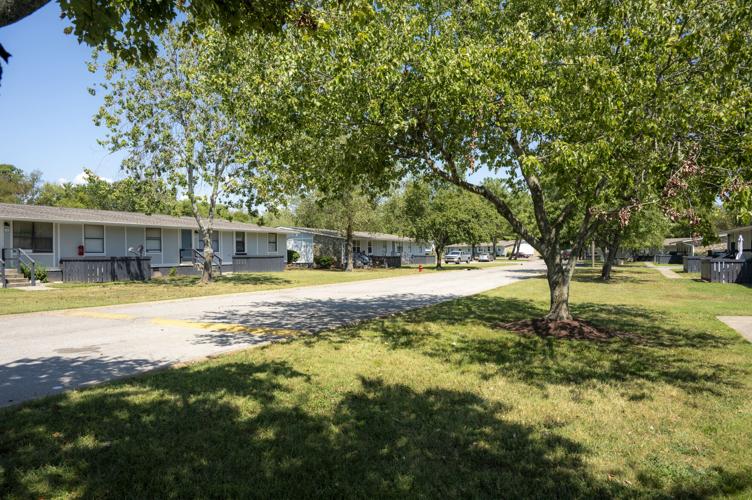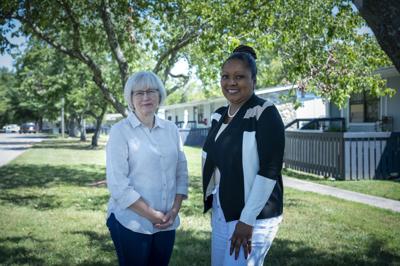Street View is a monthly column taking a close look at development-related issues affecting different neighborhoods throughout the city.
Next year, residents at the 60-unit Cottages at Drakes Creek will face a pretty unusual choice. They can continue renting their units at an affordable rate, or they can pay a similar rate and become a homeowner.
Thanks to a $7 million grant from Metro Nashville’s Barnes Housing Trust Fund and the efforts of two local community organizations, the Cottages at Drakes Creek (located on Safe Harbor Drive in Goodlettsville) will soon become the first publicly funded cooperative housing development in Nashville. Residents can pay monthly “maintenance fees” instead of rent, which will fund joint ownership and upkeep of the complex. They’ll also receive training about how the model works, and eventually democratically run the new cooperative. They’ll even collectively choose the co-op’s new name.
This new housing co-op is the joint effort of two local organizations: the Southeast Center for Cooperative Development and the William Franklin Buchanan Community Development Corp. (which often go by SEC4CD and WFBCDC). SEC4CD provides wide-reaching education about worker cooperatives and other cooperative models. It also provides technical assistance and microfinance services to worker cooperatives and helps businesses transition to employee ownership, and is looking to advise more cooperative housing projects. The WFBCDC funds projects addressing community needs, including “affordable housing, workforce development and business investment.” Some of their latest projects include mixed-use affordable housing, homebuyer education and a partnership to build a North Nashville community garden.
Hobson Flats received Barnes Fund support, but advocates say more than 100 tenants have received eviction notices since 2021
With help from local partners, National Cooperative Bank and Metro Nashville’s Planning Department, the WFBCDC and SEC4CD are launching the co-op as one solution to Nashville’s pressing need for affordable housing. Its development comes amid recent public conversations about how to fund truly sustainable affordable housing projects.
The Cottages at Drakes Creek plan is a significant step for the Barnes Fund, Nashville’s major source of public funding for affordable housing development. In its 10-year history, it has funded more than 4,700 affordable housing units. But after one Barnes Fund-supported complex filed eviction notices to more than 100 residents, the advocacy group Poder Popular spoke out against allocating public funding to traditional rental developments, calling on government officials to prioritize funding other models like cooperatives and land trusts — arrangements that don’t make a property management company a profit.
Carlina Bell, executive director at the WFBCDC, explains that the co-op is run on a “limited equity model,” meaning residents each hold part of the capital that makes up the complex. “The payments which were formerly known as rents become what we call a monthly maintenance fee,” she says. “That is applied to mortgage, covers insurance, and covers the daily operational aspect of that property.”

The Cottages at Drakes Creek
The limited equity model means residents can build up equity through homeownership without needing a large down payment or home loan. The monthly maintenance fee stays low too. It’s set as affordable for anyone making 50 percent of Nashville’s Area Median Income (the median of what all households earn in a given area). At 50 percent AMI affordability, the co-op’s fees are lower than many affordable housing complexes, which are often set at 60 percent AMI affordability.
Rosemarie Henkel-Rieger and Benny Overton are co-executive directors at SEC4CD. They tell the Scene that while the co-op has to pay for maintenance fees, repairs and emergency reserves, moving away from a profit-based model means the co-op can stay affordable. “That’s a huge piece, not extracting the profit,” says Henkel-Rieger.
The co-op is also built on a community land trust, an increasingly popular affordable housing tool. Co-op residents own the unit but not the land, which is protected from market pressures.
Once they bought the property, SEC4CD met with residents to explain the changes. A key point was to reassure everyone that they could continue renting their units whether they opted into the co-op or not. If these renters ever move, the unit will go on the market as part of the co-op — but it will be open only to people making 50 percent AMI or below.
The resident response was “surprisingly enthusiastic,” Overton says. “I thought we would get a lot of questions or concerns.”
“They were receptive and enthusiastic because we were clear with them that they would not be displaced,” Bell adds.
A recent study named Nashville the No. 7 metro area in the country for pent-up buyer demand
SEC4CD is also partnering with Free Hearts, a nonprofit helping formerly incarcerated women and girls. Formerly incarcerated people often struggle to find stable housing, and Free Hearts will work with SEC4CD to help identify formerly incarcerated women who qualify for the co-op and walk them through the application process.
One of the main hurdles co-op creators face is simply lack of understanding from the public. “It’s not easy to wrap your head around, because there are a lot of components to it,” says Bell.
Leaders hope The Cottages at Drakes Creek will show Nashville that the model can work overall. In turn, that will help SEC4CD facilitate more co-ops. It’s currently working to educate religious organizations about how they could donate excess land to build more housing. “We hope that this pilot will demonstrate to those groups that this is a viable option for them,” says Overton.
In the meantime, Bell says this is a great chance for Nashville leaders to show cost-burdened residents that they care.
“This is a novel initiative for the city, and we have just jumped right in,” she says. “I see this as a wonderful opportunity for Metro government to send that message to residents — that we see you, we hear you, we want to retain you in the city.”









